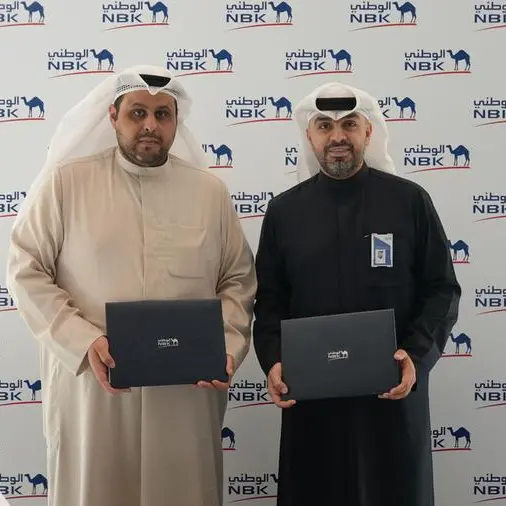PHOTO
Dr. Hassan S. Bazzi, associate dean for research at Texas A&M University at Qatar, has been elected a Fellow of the American Chemical Society (ACS) in recognition of his outstanding achievements in chemistry and contributions to science, the profession and the society. This is the second Fellowship for Bazzi who was named Fellow of the Royal Society of Chemistry (RSC) in December 2018.
Bazzi is one of 70 international chemists selected this year to the prestigious Fellows program, and he is the only one from outside the USA. Bazzi will be honored along with his Fellow Class of 2019 inductees with a lapel pin and certificate during an August 26 ceremony and reception in conjunction with the society’s 258th National Meeting and Exposition in San Diego, Calif. (USA).
In the award citation published in the July 15 issue of the ACS Chemical & Engineering News, Bazzi was recognized for “his leadership in Science and Engineering programs in Qatar, for organizing and chairing multiple international chemistry conferences in Qatar since 2004, and for his teaching and research successes.” In addition, he also was recognized for his community services through “his roles in establishing the ACS Qatar chapter, establishing STEM outreach programs for Qatar high schools, and bringing internationally renowned chemists to Qatar to promote chemical sciences.”
In addition to his role as associate dean for research, Bazzi is a professor of chemistry and executive director of development, engagement and outreach at Texas A&M at Qatar. He is also professor of materials science and engineering at Texas A&M University in College Station, Texas (USA).
"Texas A&M University at Qatar offers world-class education right here in Doha and Dr. Bazzi is one of our top faculty members,” said Dr. César O. Malavé, dean of Texas A&M at Qatar. “Achieving Fellow status in a prestigious professional organization such as the American Chemical Society the highest status a member can receive. Dr. Bazzi’s election as Fellow is proof of the caliber of teaching, research, service and leadership that he brings to our university, and is testament to the quality of education offered here at Texas A&M at Qatar.”
Bazzi’s research interests focus on metathesis chemistry as a powerful tool in small molecule and polymer synthesis, in addition to polymer-supported catalysis, DNA-mimetic polymers, and fluorous analogs of ruthenium-based catalysts. He has authored and co-authored 88 peer-reviewed scientific publications, three U.S. patents, four U.S. and International patent applications, and 145 conference presentations. He has served the broader chemistry community — nationally and internationally — through the various conferences and workshops that he has helped organize over the years. He has invited a large number of world-renowned scientists and engineers to these events to share their experiences with the Qatari community; these include Nobel Laureates, National Medal of Science Recipients, National Academy members (science and engineering), and various influential policy makers from around the world.
His community service is perhaps most clearly shown in his extensive work on raising awareness of the importance of STEM (science, technology, engineering and math) for the State of Qatar. He has played a leading role in establishing a Science and Engineering Road Show in Qatar — the first in the nation — that brings exciting learning experiences to Qatar’s young people.
Bazzi joined the Texas A&M at Qatar faculty in 2004 as assistant professor, was promoted to associate professor in 2009 and then to professor in 2014. He was the first chair of the Science Program (2006-2014) where he oversaw the growth and expansion of the chemistry, physics and mathematics programs. He has also served as interim chair of the Petroleum Engineering Program (2014-2015) and assistant dean for research (2014-2017). In 2018, Bazzi founded the Qatar chapter of the American Chemical Society and was elected chair for 2018-2020. He is also the International Representative of the Royal Society of Chemistry in Qatar.
Bazzi received his bachelor’s degree in chemistry in 1996 and master’s degree in organic chemistry in 1998, both from the American University of Beirut (Lebanon), and his Ph.D. in polymer chemistry with Dean’s Honor List from McGill University (Canada) in 2003. He worked briefly with the United Nations as a chemical weapons inspector in Iraq before doing a postdoctoral research fellowship at Université de Montréal. Bazzi has also completed the Management Development Program in June 2014 and the Institute for Management and Leadership in Education in June 2018 at Harvard University Graduate School of Education.
Bazzi said, “This is a tremendous honor, and I am humbled and grateful to be included in this exemplary group of chemists. Membership in and service to professional societies can play a significant role in shaping the future of our field, and I am proud of the work done by the American Chemical Society to advance chemistry for the benefit of our world and all its people.”
The American Chemical Society, founded in 1876 and with more 150,000 members in more than 140 countries, is the world’s largest scientific society. The body of ACS Fellows comprises 1180 members, that is less than 1 percent of the global ACS membership. The American Chemical Society (ACS) Fellows Program was created by the ACS Board of Directors in December 2008 to recognize members of ACS for outstanding achievements in and contributions to science, the profession, and the
society. The ACS Fellows Program recognizes and honors ACS members for outstanding achievements in and contributions to the science and the profession, and for equally exemplary service to the society.
-Ends-
For information contact:
Lesley Kriewald
Texas A&M University at Qatar
Lesley.Kriewald@qatar.tamu.edu
+974.4423.0424
About Texas A&M University at Qatar
Since 2003, Texas A&M University has offered undergraduate degrees in chemical engineering, electrical engineering, mechanical engineering and petroleum engineering in Qatar Foundation’s Education City, and graduate degrees in chemical engineering since fall 2011. Texas A&M at Qatar has awarded more than 1,050 degrees. All four undergraduate engineering degree programs are accredited by the Engineering Accreditation Commission of ABET. Faculty from around the world are attracted to Texas A&M at Qatar to educate the next generation of engineering leaders in Qatar and to conduct research valued at more than $256 million that address issues important to the State of Qatar. Visit www.qatar.tamu.edu.
Disclaimer: The contents of this press release was provided from an external third party provider. This website is not responsible for, and does not control, such external content. This content is provided on an “as is” and “as available” basis and has not been edited in any way. Neither this website nor our affiliates guarantee the accuracy of or endorse the views or opinions expressed in this press release.
The press release is provided for informational purposes only. The content does not provide tax, legal or investment advice or opinion regarding the suitability, value or profitability of any particular security, portfolio or investment strategy. Neither this website nor our affiliates shall be liable for any errors or inaccuracies in the content, or for any actions taken by you in reliance thereon. You expressly agree that your use of the information within this article is at your sole risk.
To the fullest extent permitted by applicable law, this website, its parent company, its subsidiaries, its affiliates and the respective shareholders, directors, officers, employees, agents, advertisers, content providers and licensors will not be liable (jointly or severally) to you for any direct, indirect, consequential, special, incidental, punitive or exemplary damages, including without limitation, lost profits, lost savings and lost revenues, whether in negligence, tort, contract or any other theory of liability, even if the parties have been advised of the possibility or could have foreseen any such damages.




















